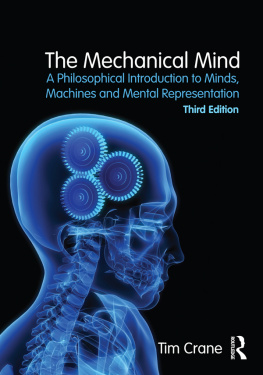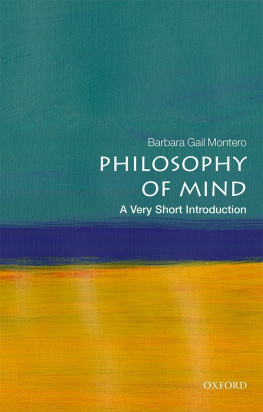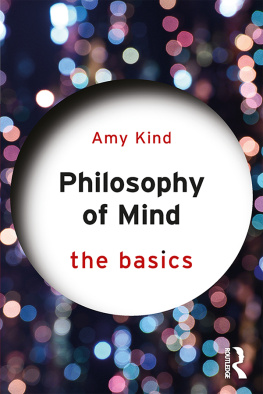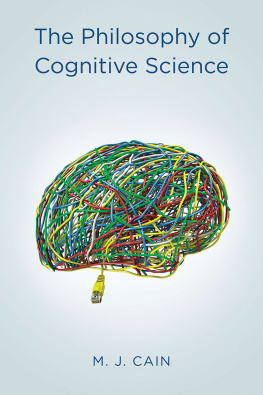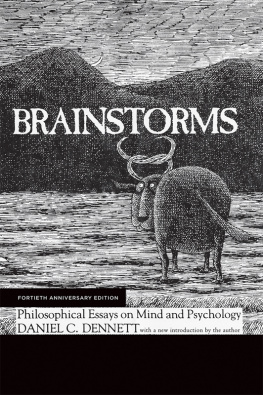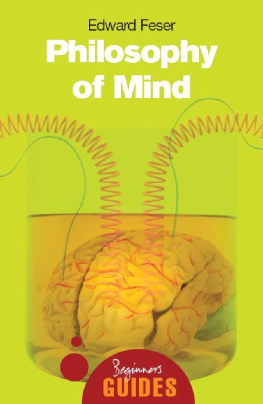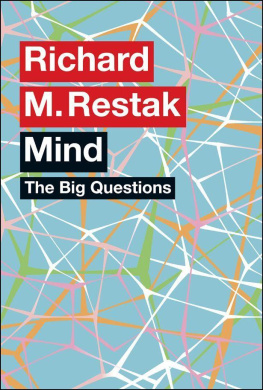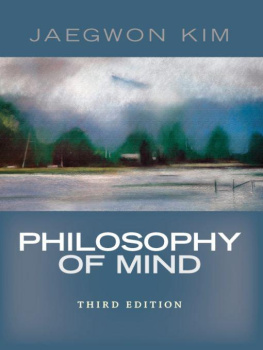The Mechanical Mind
How can the human mind represent the external world? What is thought, and can it be studied scientifically? Should we think of the mind as a kind of machine? Is the mind a computer? Can a computer think? Tim Crane sets out to answer these questions and more in a lively and straightforward way, presuming no prior knowledge of philosophy or related disciplines.
Since its first publication The Mechanical Mind has introduced thousands of people to some of the most important ideas in contemporary philosophy of mind. Crane explains the fundamental ideas that cut across philosophy of mind, artificial intelligence and cognitive science: what the mindbody problem is; what a computer is and how it works; what thoughts are and how computers and minds might have them. He examines different theories of the mind from dualist to eliminativist, and questions whether there can be thought without language and whether the mind is subject to the same causal laws as natural phenomena. The result is a fascinating exploration of the theories and arguments surrounding the notions of thought and representation.
This third edition has been fully revised and updated, and includes a wholly new chapter on externalism about mental content and the extended and embodied mind. There is a stronger emphasis on the environmental and bodily context in which thought occurs. Many chapters have been reorganised to make the readers passage through the book easier. The book now contains a much more detailed guide to further reading, and the chronology and the glossary of technical terms have also been updated.
The Mechanical Mind is accessible to anyone interested in the mechanisms of our minds, and essential reading for those studying philosophy of mind, philosophy of psychology, or cognitive psychology.
Tim Crane is Knightbridge Professor of Philosophy at the University of Cambridge, and a Fellow of Peterhouse, Cambridge. He is the author of The Objects of Thought, Aspects of Psychologism, Elements of Mind, the editor of The Contents of Experience, General Editor of the Routledge Encyclopedia of Philosophy, and the Philosophy Consultant Editor of the Times Literary Supplement.
Third edition published 2016
by Routledge
2 Park Square, Milton Park, Abingdon, Oxon OX14 4RN
Simultaneously published in the USA and Canada
by Routledge
711 Third Avenue, New York, NY 10017
Routledge is an imprint of the Taylor & Francis Group, an informa business
2016 Tim Crane
The right of Tim Crane to be identified as the author of this work has been asserted by him in accordance with sections 77 and 78 of the Copyright, Designs and Patents Act 1988.
All rights reserved. No part of this book may be reprinted or reproduced or utilised in any form or by any electronic, mechanical, or other means, now known or hereafter invented, including photocopying and recording, or in any information storage or retrieval system, without permission in writing from the publishers.
First published 1995 by Penguin Books
Second edition published 2003 by Routledge
Trademark notice: Product or corporate names may be trademarks or registered trademarks, and are used only for identification and explanation without intent to infringe.
British Library Cataloguing in Publication Data
A catalogue record for this book is available from the British Library
Library of Congress Cataloging in Publication Data
Crane, Tim.
The mechanical mind : a philosophical introduction to minds, machines, and mental representation / by
Tim Crane. -- 3rd Edition.
pages cm
Includes bibliographical references and index.
ISBN 978-1-138-85832-9 (hardback : alk. paper) -- ISBN 978-1-138-85835-0 (pbk. : alk. paper) -- ISBN
978-1-315-65868-1 (e-book) 1. Philosophy of mind. I. Title.
BD418.3.C74 2016
128.2--dc23
2015023436
ISBN13: 978-1-138-85832-9 (hbk)
ISBN13: 978-1-138-85835-0 (pbk)
ISBN13: 978-1-315-65868-1 (ebk)
Typeset in Franklin Gothic
by Saxon Graphics Ltd, Derby
But how is it, and by what art, doth the soul read that such an image or stroke in matter signifies such an object? Did we learn such an Alphabet in our Embryo-state? And how comes it to pass, that we are not aware of any such congenite apprehensions? That by diversity of motions we should spell out figures, distances, magnitudes, colours, things not resembled by them, we attribute to some secret deductions.
Joseph Glanvill, The Vanity of Dogmatizing (1661)
To my parents
Contents
6.5 Instantiating a function and computing a function
13.2 Consciousness, what its like and qualia
This book is an introduction to some of the main preoccupations of contemporary philosophy of mind. There are many ways to write an introductory book. Rather than giving an even-handed description of all recent philosophical theories of the mind, I decided instead to follow through a line of thought which captures the essence of what seem to me the most interesting contemporary debates. Central to this line of thought is the problem of mental representation: how can the mind represent the world? This problem is the thread that binds the chapters together, and around this thread are woven the other main themes of the book: the nature of everyday psychological explanation, the causal nature of the mind, the mind as a computer and the reduction of mental content.
Although there is a continuous line of argument, I have tried to construct the book so that (to some extent) the chapters can be read independently of each other. (Note added in 2015: the chapter organisation has been significantly altered since the first edition. What follows applies only to the first edition.) So .
At the end of each chapter, I have given suggestions for further reading. More detailed references are given in the endnotes, which are intended only for the student who wishes to follow up the debate no-one needs to read the endnotes in order to understand the book.
I have presented most of the material in this book in lectures and seminars at University College London over the last few years, and I am very grateful to my students for their reactions. I am also grateful to audiences at the Universities of Bristol, Kent and Nottingham, where earlier versions of were presented as lectures. I would like to thank Stefan McGrath for his invaluable editorial advice, Caroline Cox, Stephen Cox, Virginia Cox, Petr Kol, Ondrej Majer, Michael Ratledge and Vladimr Svoboda for their helpful comments on earlier versions of some chapters, Roger Bowdler for the drawings and Ted Honderich for his generous encouragement at an early stage. I owe a special debt to my colleagues Mike Martin, Greg McCulloch, Scott Sturgeon and Jonathan Wolff for their detailed and perceptive comments on the penultimate draft of the whole book, which resulted in substantial revisions and saved me from many errors. This penultimate draft was written in Prague, while I was a guest of the Department of Logic of the Czech Academy of Sciences. My warmest thanks go to the members of the Department Petr Kol, Pavel Materna, Ondrej Majer and Vladimr Svoboda, as well as Marie Dui for their kind hospitality.
University College London
November 1994
The main changes that I have made for this second edition are the replacement of the epilogue with a new chapter on consciousness, the addition of new sections on modularity and evolutionary psychology to , except where that exposition involved real errors.

